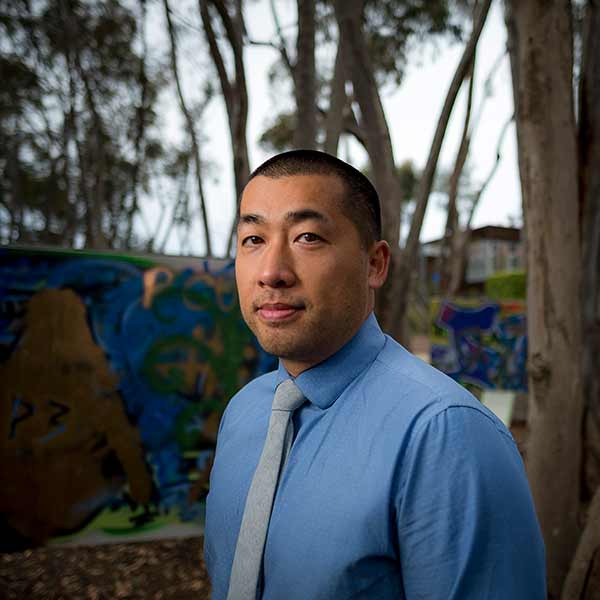By:
- Inga Kiderra
Published Date
By:
- Inga Kiderra
Share This:

Photo by iStock_ rrodrickbeiler
New Center to Address Immigration Policy Debates in Real Time
U.S. Immigration Policy Center at UC San Diego aims to bring data-driven research to decision makers, media and public
Immigration has played an integral role in American history and is sure to feature prominently in America’s future. But what should the immigration policies of our nation of immigrants be? That context and that question are driving the newly launched U.S. Immigration Policy Center at UC San Diego.
Dedicated to rigorous social science on the foundations and consequences of U.S. immigration policy, the U.S. Immigration Policy Center will produce research on immigration debates as they happen. The center’s real-time responsiveness is explicitly meant to help inform decision makers, the media and the public.
“From DACA to family separation to the border wall, immigration continues to feature prominently in political and policy debates,” said the center’s founder and director, Tom K. Wong, associate professor of political science at UC San Diego. “The USIPC will bring much needed empirical evidence to the table as we, as a country, continue to grapple with immigration.”
Wong served as an advisor to the White House Initiative on Asian Americans and Pacific Islanders in the Obama administration, where he co-led the immigration portfolio, and currently serves on the State of California’s 2020 Census Complete Count Committee. At UC San Diego, in addition to directing the USIPC, Wong directs the International Migration Studies minor.
Distinguished by both relevance and speed
The USIPC will investigate a range of U.S. immigration policies, including admissions policies, border security, interior enforcement and immigrant integration. It will also study undocumented populations, immigrant civic engagement, and public attitudes on immigration.

Political scientist Tom Wong, founder and director of the U.S. Immigration Policy Center at UC San Diego. Photo by Erik Jepsen/UC San Diego Publications
In addition to producing data-driven research reports, policy memos and fact sheets, the USIPC will also conduct polling and do evaluation research. Critically, Wong said, the center will strive to be timely.
“The typical academic timeline is different from policy and judicial clocks,” said Wong. “We’re planning on being as fast as the news cycle.”
Public engagement—from public events and policy briefings to collaborations with local community-based organizations—will also be a core part of the work of the USIPC, Wong said.
“This new center promises to make a unique contribution to the national conversation on immigration,” said Thad Kousser, chair of UC San Diego’s Department of Political Science in the Division of Social Sciences. “By providing rigorous research that informs policy debates as they happen, it can provide a real-time base of evidence for both policymakers and the public to draw upon."
The team
Joining Wong at the USIPC are two inaugural fellows: Vanessa Cecena, former director of immigration services at Catholic Charities of San Diego, and Ammar Campa-Najjar, who recently ran for Congress in California’s 50th congressional district. Cecena is serving as USIPC Immigrant Rights and Justice Fellow and Campa-Najjar as USIPC Civic Engagement Fellow.
Four faculty affiliates and a dozen graduate and undergraduate research assistants round out the team.
Research as a public resource
Wong intends the USIPC website to be an ongoing source of information. Currently, there are four new working papers on the site, in addition to several policy reports authored by Wong last year. The findings of these papers speak directly to debates over sanctuary policies and the border wall.

A big-picture goal of the center, Wong said, is “making sure our democracy works in an increasingly diverse America.” Photo by iStock_AAraujo
Highlights of research currently posted on the center’s website include the following. When local law enforcement officials work with ICE on immigration enforcement, undocumented immigrants are:
- 60.8 percent less likely to report crimes they witness to the police
- 42.9 percent less likely to report crimes they are victims of to the police
- 69.6 percent less likely to use public services that require them to disclose their personal contact information
- 63.9 percent less likely to do business (e.g., open a bank account, get a loan) that requires them to disclose their personal contact information
- 68.3 percent less likely to participate in public events where police may be present
- 34.8 percent less likely to trust that police officers and sheriffs would keep them and their families safe
- 33.8 percent less likely to trust that police officers and sheriffs would keep their communities safe
- 28.5 percent less likely to trust that police officers and sheriffs would protect the rights of all people, including undocumented immigrants, equally
- 26.1 percent less likely to trust that police officers and sheriffs would protect undocumented immigrants from abuse or discrimination
The proposed border wall will likely not deter undocumented immigrants from attempting to return to the U.S. if deported, Wong’s research suggests. “Even if the proposed border wall displaces unauthorized entry routes to the Yuma desert, which means an increased probability of death while crossing the border, 64.1 percent of the undocumented immigrants we surveyed remain committed to returning to the U.S. if deported,” Wong said.
The USIPC is working in partnership with government agencies, think tanks, immigrant-serving non-profits and civic engagement organizations. It welcomes new collaborations.
“The big-picture goals for the center,” Wong said, “are understanding how to best manage the effects of demographic change and making sure our democracy works in an increasingly diverse America.”
Share This:
You May Also Like
Stay in the Know
Keep up with all the latest from UC San Diego. Subscribe to the newsletter today.



